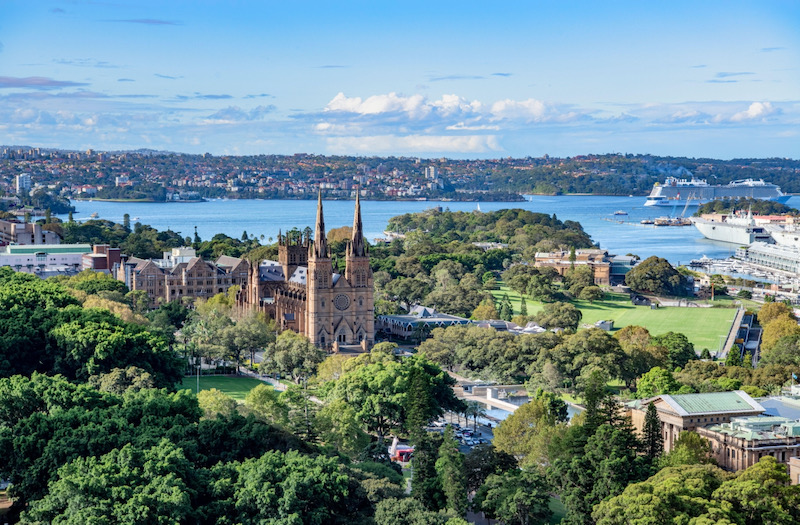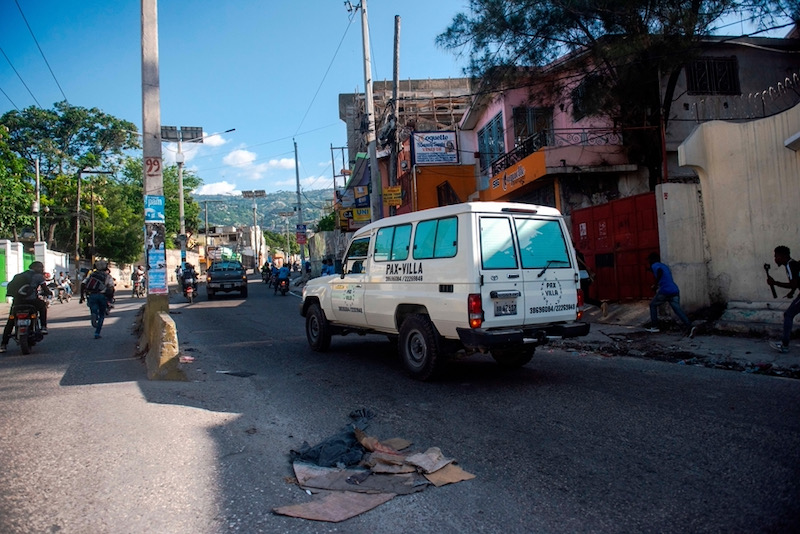Four suspects in the assassination of President Jovenal Moïse in the early hours of Wednesday have been shot dead and two others have been arrested.
Speaking in a television address on Wednesday night, Haiti’s police chief Leon Charles said: “Four mercenaries were killed, two were intercepted under our control.” Indicating that there had been protracted gun battles following the assassination, he added that they blocked the suspects as they left the scene of the crime. “Since then, we have been battling with them.” He said that three policemen had been taken hostage but had since been freed.
Meanwhile new details emerged of how the assassination unfolded.
Heavily armed assassins stormed the couple's home in the hills above Port-au-Prince at around 01:00 local time. The Interim Prime Minister Claude Joseph said on Wednesday that the attackers were “foreigners who spoke English and Spanish”. Haiti's official languages are Creole and French.
Speaking to the Haitian daily newspaper Le Nouvelliste Magistrate Carl Henry Destin said Mr Moïse's body had a total of 12 bullet holes, in the forehead, chest, hips and abdomen. “The president's office and bedroom were ransacked. We found him lying on his back, blue pants, a white shirt smeared with blood, his mouth open, his left eye gouged out,” Le Nouvelliste quoted him as saying.
Mr Destin added that the first couple's daughter, Jomarlie, had survived by hiding in her brother's room, while two domestic staff members had been tied up by the attackers. No-one apart from the 53-year-old president and first lady Martine Moïse, 47, was shot. Mrs Moïse has been transferred to a hospital in Florida. The US ambassador to Haiti said she was in critical but stable condition and was being taken to hospital in Miami.
Haiti has for more than a year faced waves of gang violence and kidnappings, particularly in the capital, Port-au-Prince, where several districts are no-go areas. Moïse has ruled by decree since parliamentary elections, due in October 2019, were delayed, and his supporters and opposition supporters turned to violence.
Opposition leaders have demanded that Moïse step down, claiming his term had expired following his election victory in November 2016. Moïse supporters have insisted that his term only began in early 2017, when he actually took office. An interim government held power for a year following the election.
Interim Prime Minister Claude Joseph said on Wednesday that “all measures have been taken to ensure continuity” and that “democracy and the republic will win”. But this begged the question of who will be the next prime minister. A new prime minister, Ariel Henry, was named by Mr Moïse just this week but has yet to be sworn in.
In a series of media interviews, Mr Henry maintained that he was still prime minister and said he was choosing his cabinet. He said he had no quarrel with Mr Joseph, though he disagreed with the state of emergency, and called for dialogue.
The question of who will succeed Mr Moïse as president is also fraught with danger and uncertainty. Haiti's constitution says the president of the Supreme Court should take over in the event of a presidential vacancy, but Chief Justice René Sylvestre died of Covid-19 earlier this year.
Speaking to Vatican News on Wednesday, Bishop Alfonse Quesnel of Fort-Liberté in Haiti expressed shock at the news of the assassination. “We could not have expected this,” he said. “Although it is true that there was a lot of tension around the president, we could not have thought it would get to this point.”
He said that the new prime minister appointed by Moïse, Ariel Henry, might not even be able to take office, and expressed concern that the country is in “a chaotic situation”.
Meanwhile at Notre Dame d’Haiti Catholic Church in the heart of Miami’s Little Haiti neighbourhood, prayers were said yesterday for Moïse and for his wife.
Delivering a sermon in Haitian Creole and English, Fr Reginald Jean Mary asked his parishioners to pray for First Lady Martine Moïse, and her deceased husband Jovenel. “Until when do we have to suffer? Until when will we continue to kill one another? Until when can we be one, Jesus?” he prayed.
Moïse and Jean Mary were friends, both born in Jean-Rabel, a commune in the Nord-Ouest department of Haiti before they both moved to Port-au-Prince. Moïse was an entrepreneur, Jean Mary an accountant. Jean Mary joined the priesthood in 1989 and after studying in France he joined the Archdiocese of Miami in 1991. He became the parish priest of Notre Dame D’Haiti in 2004, a parish that serves some of the Haitians who live and work in South Florida under a Temporary Protected Status, or TPS.
US President Joe Biden yesterday offered condolences to the people of Haiti for the “horrific assassination” of President Moïse, while UK Prime Minister Boris Johnson called it “an abhorrent act” and appealed for calm.
The UN Security Council is to hold a closed-door meeting on the killing today and has issued “an emphatic call on all political stakeholders in Haiti to refrain from any acts of violence or incitement”.



 Loading ...
Loading ...